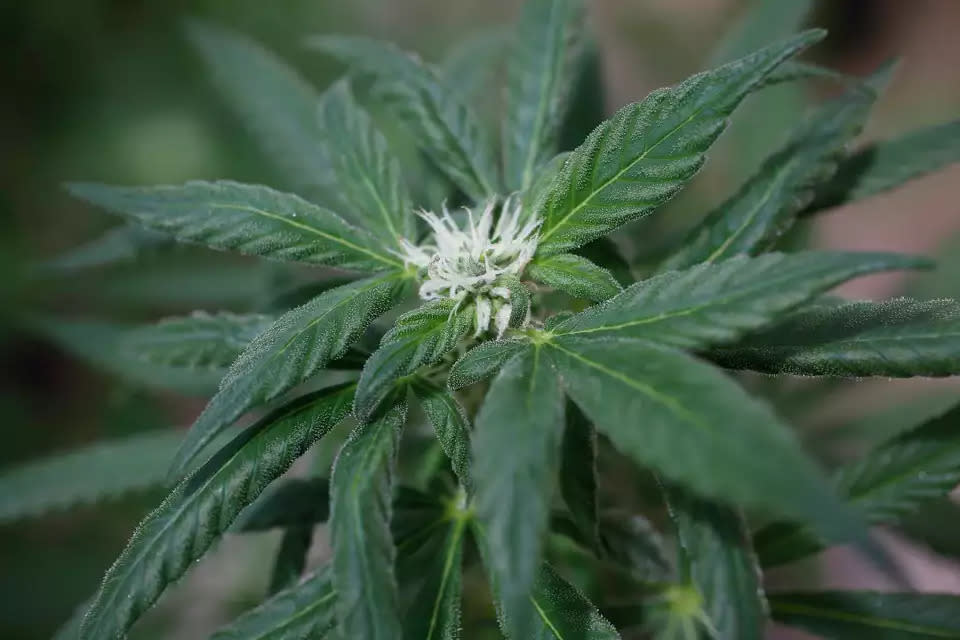The Farm Bill is stalled. What does that mean for hemp and delta-8 products in Texas?

In the race between Texas officials and the U.S. Congress to ban "intoxicating hemp," it is now unclear how long products like delta-8 and THCa will remain on shelves, as progress on the Farm Bill seems to be at a standstill.
In May, the U.S. House Committee on Agriculture passed its version of the bill, which excluded "intoxicating hemp" — such as delta-8 and THCa — from its text. Meanwhile, the Senate committee's initial draft made no changes to hemp production from the 2018 bill that introduced the crop.
Since then, the pending bill has remained mostly quiet, with no further progress on the House floor. And with the upcoming U.S. presidential election and political campaigns at their peak, many have given up hope on Farm Bill passing this year.
More: Farm Bill stalled as deadline quickly approaches. What happens if it isn't approved?
When is the deadline for a new Farm Bill?
The 2018 Farm Bill was set to expire last year, but lawmakers extended it for another year. Congress is required to sign a new bill by Sept. 30, or the bill will extend until Sept. 30, 2025. The bill is revised every five years.
Will the Texas Senate ban hemp-derived THC products?
The inclusion of hemp in the 2018 Farm Bill primarily focused on the crop's potential as an agricultural commodity, particularly for fiber, seeds and extracts like CBD. Legislators failed to anticipate the wide array of consumable products made possible by hemp, such as delta-8 and THCa.
Subsequently, in 2019, the state's decision to allow for a hemp industry has allowed for an explosion of delta-8 and delta-9 products, with new cannabinoids and products continuously hitting shelves in gas stations and smoke shops across the Lone Star State.
"When you don't have a thoughtful, large bill passing to regulate cannabis, you get a hot mess, gray markets that we have all over Texas," Susan Hays, an attorney with a focus in hemp and marijuana space, told the Austin American-Statesman in May. "So it's very much the result of policy choices by the leadership."
Now, the Texas Legislature is working to close these loopholes.
Lt. Gov. Dan Patrick released a list in April with a set of legislative directives for the remainder of the year. It includes the priority of revisiting the Senate's 2019 decision that allowed the initial sales of cannabis-derived products in Texas.
The Texas Senate Committee on State Affairs met on May 29 to discuss a potential statewide ban on delta-8 and delta-9 products, but no decision has been reached yet.
More: Some Texas vape, CBD shops have sold products with illegally high THC levels, police say
What happens to hemp if the Farm Bill is not approved in time?
If the federal Farm Bill does not pass by Sept. 30, the regulation of intoxicating hemp products will default to Texas state law until new federal legislation is enacted.
However, the next regular legislative session in Texas is scheduled to begin in January 2025, unless a special session is called by Gov. Greg Abbott, and it is likely that the state Senate will consider and potentially implement new laws regarding the ban of "intoxicating hemp" during this session.
If passed, the new law would typically go into effect 90 days after the end of the legislative session unless otherwise specified in the legislation.
At the current rate, delta-8 and THCa products appear to be safe in Texas for at least the next year as it awaits a final decision from the Texas Legislature.
What is delta-8 and THCa?
The effects of delta-8 and THCa are strikingly similar to delta-9 THC, the active ingredient in cannabis, or marijuana, which is illegal in Texas.
Both delta-8 and THCa are legal under state and federal hemp laws, which define legal hemp as cannabis products containing 0.3% delta-9 THC or less.
The main difference between delta-8 and delta-9 THC is the location of a double bond: delta-8 has it on the eighth carbon, while delta-9 has it on the ninth. THCa, on the other hand, is not psychoactive in its natural form. However, when heated — a necessary step for smoking the product — it converts into delta-9 THC.
This article originally appeared on Lubbock Avalanche-Journal: What a stalled Farm Bill means for hemp and delta-8 in Texas

